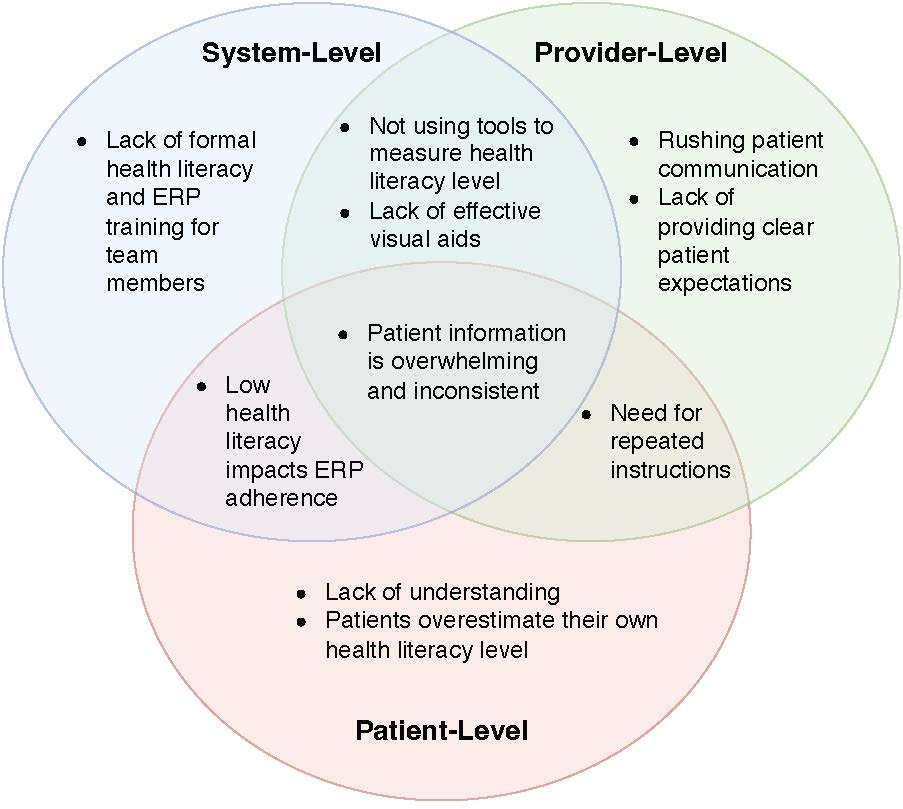Back to 2024 Abstracts
LOW HEALTH LITERACY AS A BARRIER TO ENHANCED RECOVERY PROGRAMS: A QUALITATIVE STUDY
Bayley A. Jones
*3,1, Ivan I. iherbey
1, Gurudatta Naik
1, Alfonsus Adrian H. Harsono
1, Nathan C. English
4, Wendelyn Oslock
1, Burke Smith
1, Michael Rubyan
2, Daniel I. Chu
11The University of Alabama at Birmingham Department of Surgery, Birmingham, AL; 2University of Michigan School of Public Health, Ann Arbor, MI; 3The University of Texas Southwestern Medical Center Department of Surgery, Dallas, TX; 4University of Cape Town Department of Surgery, Cape Town, Western Cape, South Africa
Introduction: Low health literacy is a significant contributor to surgical disparities and drives increased healthcare costs and poor surgical outcomes. Enhanced recovery programs (ERPs) have shown great potential in addressing surgical disparities. However, surgical patients with low health literacy still experience worse outcomes despite being under an ERP. The purpose of this study was to characterize the role of health literacy as a barrier to implementation of ERPs to inform future interventions aimed at adapting ERPs for patients with low health literacy.
Methods: We conducted semi-structured interviews of healthcare workers involved in the care of ERP patients. Participants were recruited using convenience sampling and a snowball-recruitment approach. The interview guide was developed using the theoretical domains framework. Four coders coded verified interview data with NVivo 14 using inductive thematic analysis and content analysis approaches. The team established inter-coder agreement at 90% and a working codebook was developed. A constant comparative method was employed to ensure that saturation in the data was achieved.
Results: 18 healthcare workers were interviewed, including surgeons (n=3), anesthesiologists (n=2), nurses (n=11), and IT/project manager (n=2). Participants identified three levels of barriers to successful ERP implementation for patients with low health literacy: patient, provider and system-level factors (
Figure 1). Team members characterized strategies to address these barriers, including improvement in patient-provider communication, health literacy-sensitive patient education with the use of visual aids, increased consistency in patient education at all stages of the surgical journey, and health literacy and ERP training for team members.
Conclusion: Low health literacy is a significant barrier to ERP implementation and affects patient understanding, patient-provider communication and patient education. In addition, participants acknowledge the role of health literacy in adherence to ERP components, which is known to be a significant driver of ERP success. As a result, health literacy-sensitive interventions directed at the patient, provider and system-level may improve care for low health literacy patients.

Figure 1. Barriers to ERP Implementation/Success for Low Health Literacy Patients
Back to 2024 Abstracts
